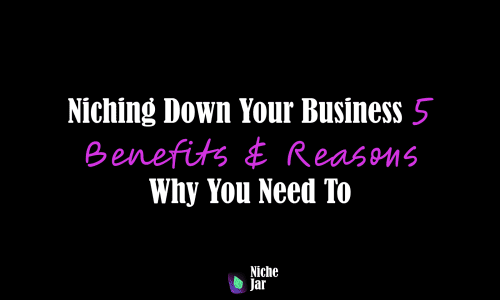- Anahita Parishan
- 0 Comments
- 4265 Views
How to Build a Sustainable Businesses?
Are you ready to embark on an entrepreneurial journey with a purpose? The business landscape is evolving, and today’s successful ventures are not just about profits – they’re about sustainability, ethical practices, and long-term viability. In a world where conscious consumerism and eco-friendliness are on the rise, building a sustainable business is not only responsible but also incredibly rewarding.
Welcome to “How to Build a Sustainable Business: A Step-by-Step Guide.” In this comprehensive roadmap to sustainable entrepreneurship, we’ll dive deep into the principles, strategies, and real-world insights that will empower you to create a business that thrives while making a positive impact on our planet. Whether you’re a seasoned entrepreneur looking to pivot toward sustainability or a newcomer eager to make a difference from the start, this guide is your key to unlocking the potential of sustainable business. So, fasten your seatbelts as we embark on a journey where purpose meets profit, and together, we’ll explore the steps to build a business that lasts, prospers, and leaves a lasting legacy.

Importance of Sustainable Business Ideas
The significance of sustainable business ideas cannot be overstated in today’s world. With growing concerns about the environment, social responsibility, and long-term economic viability, entrepreneurs are increasingly focusing on businesses that align with sustainable practices. Sustainable business ideas not only contribute to a healthier planet but also have the potential for long-term profitability. As consumers seek products and services that are eco-friendly, ethical, and durable, businesses that cater to these demands are positioned for success. This blog post aims to underscore the importance of sustainable business ideas and provides insights into thriving within these evergreen niches.
Overview of What We Will Cover
Throughout this comprehensive guide, we will explore a wide range of sustainable business ideas within evergreen niches. We will delve into renewable energy solutions, eco-friendly products and services, environmental consulting, sustainable agriculture, and green building and construction. You’ll discover the economic and environmental benefits of these niches, learn how to choose the right one for your entrepreneurial journey, and explore real success stories. We’ll also provide valuable resources and tools for aspiring entrepreneurs who are eager to make a positive impact on the world while building prosperous businesses. Join us on this journey of discovering how sustainable business ideas can be both personally fulfilling and financially rewarding.
Understanding Sustainable Business: A Conceptual Overview
In a world where environmental concerns, ethical practices, and social responsibility are paramount, the concept of sustainability has become more than just a buzzword; it’s a necessity. Sustainability is no longer limited to recycling initiatives or reducing energy consumption; it has transformed into a fundamental principle of modern business. Understanding sustainable business goes beyond the mere pursuit of profit; it’s about creating ventures that have a lasting positive impact on the world while maintaining profitability. This conceptual overview delves into the essence of sustainable business, elucidating its core principles and highlighting the importance of aligning entrepreneurship with the well-being of the planet and its inhabitants.
- Defining Sustainable Business: At its core, sustainable business is about integrating economic success with social and environmental responsibility. It’s not just about profit margins but about measuring a business’s impact on people and the planet.
- Triple Bottom Line: Sustainable businesses follow the principle of the “Triple Bottom Line,” which means considering three key aspects: people, planet, and profit. This framework encourages businesses to evaluate their performance not just in financial terms but also in terms of their social and environmental contributions.
- Environmental Stewardship: Sustainable businesses prioritize environmental sustainability. This includes reducing their carbon footprint, minimizing waste, and conserving resources. They often invest in renewable energy, eco-friendly technologies, and responsible sourcing.
- Social Responsibility: Beyond profitability, these businesses are committed to ethical practices. This may involve fair labor conditions, supporting local communities, or contributing to social causes.
- Economic Viability: For a business to be truly sustainable, it must be economically viable. It should generate profits and grow over time. The long-term perspective is key here; it’s not about quick gains but sustained success.
- Innovation and Adaptation: Sustainable businesses are often at the forefront of innovation. They constantly seek new ways to reduce their environmental impact, improve their products and services, and address emerging social issues.
- Transparency and Accountability: Openness is a significant characteristic of sustainable businesses. They are transparent about their operations, practices, and their progress toward sustainability goals. Accountability is central to the trust they build with customers and stakeholders.
- Long-Term Vision: Sustainability is not a short-term trend. It’s a long-term vision for creating businesses that can withstand economic and environmental challenges, ensuring a prosperous future for both the business and the world.
- Customer and Employee Engagement: Sustainable businesses often engage their customers and employees in their sustainability efforts. They build relationships with customers who share their values and involve employees in initiatives like reducing energy consumption or volunteering in the community.
- Global Impact: Sustainable businesses think beyond borders. They consider the global impact of their operations and products, aiming to contribute positively to worldwide issues like climate change, poverty, and access to clean water.
Understanding sustainable business is about recognizing that profit and sustainability are not mutually exclusive. In fact, a commitment to sustainability can be a driver of long-term profitability. This overview provides a foundation for diving deeper into the various aspects of sustainable business, from environmental practices to social responsibility and sustainable entrepreneurship. Let me know if you’d like to explore any specific aspects further, or if you have particular areas of interest you’d like to focus on.
The Benefits of Building a Sustainable Business
In today’s rapidly changing world, building a sustainable business is not just an admirable goal; it’s a smart and strategic choice. Sustainable businesses, often referred to as “green businesses” or “eco-entrepreneurship,” focus on creating long-term value not only for themselves but also for society and the environment. Let’s explore the significant benefits of embarking on this journey towards sustainability:
- Resilience and Risk Mitigation: Sustainable businesses are better equipped to weather economic and environmental challenges. By diversifying energy sources, conserving resources, and considering long-term impacts, they reduce vulnerability to market fluctuations and regulatory changes.
- Cost Savings: Many sustainability practices, such as energy efficiency, waste reduction, and responsible sourcing, lead to direct cost savings. This boosts a business’s profitability while minimizing its impact on the environment.
- Enhanced Brand Reputation: Sustainability initiatives resonate positively with consumers who prefer environmentally responsible products and ethical business practices. Building a reputation as a socially responsible business can increase customer loyalty and attract new customers.
- Competitive Advantage: Sustainable businesses often outperform their competitors. They leverage innovation to create more eco-friendly products and services, giving them a unique selling point in the market.
- Attracting and Retaining Talent: Many employees, especially the younger generation, seek meaningful work and purpose-driven employers. Sustainable businesses can attract top talent and improve employee retention by aligning with these values.
- Access to Capital: Increasingly, investors are looking to support sustainable businesses. Access to capital can be easier for companies with strong sustainability practices and a clear commitment to long-term ethical goals.
- Positive Legal and Regulatory Relations: Sustainable businesses are more likely to be in compliance with evolving environmental regulations. This fosters positive relationships with governments and local communities.

Key Principles of Sustainable Entrepreneurship
Sustainable entrepreneurship is not a one-size-fits-all concept; it’s a dynamic and adaptive approach to business that aligns with global efforts to create a better future. These key principles guide entrepreneurs in their journey toward sustainability:
- Purpose-Driven: Sustainable entrepreneurs are motivated by more than just profit. They have a clear sense of purpose that drives their commitment to making a positive impact on society and the environment.
- Innovation and Adaptation: Sustainability often requires thinking outside the box. Entrepreneurs in this space continuously seek innovative solutions to address environmental and social challenges. They adapt their products, processes, and business models to meet evolving sustainability goals.
- Triple Bottom Line: Sustainable entrepreneurs embrace the “Triple Bottom Line” concept, emphasizing that business success should be measured in terms of economic, social, and environmental performance. They balance profitability with people and planet.
- Transparency and Accountability: Building trust with stakeholders is essential. Sustainable entrepreneurs are open about their operations, challenges, and successes. This transparency builds credibility and encourages accountability.
- Long-Term View: Sustainability is a long-term commitment. Entrepreneurs in this field understand that the benefits may take time to realize but are worth the investment for the future of the business and the planet.
- Social Responsibility: Sustainable entrepreneurs often engage with and support the communities in which they operate. They contribute positively to society by addressing social issues and promoting ethical practices.
- Environmental Stewardship: Caring for the environment is a core principle. Sustainable entrepreneurs reduce waste, minimize carbon footprints, and use resources efficiently to protect natural ecosystems.
The Significance of Sustainable Business Ideas
In today’s dynamic business landscape, sustainable business ideas hold immense significance due to their numerous benefits and ability to adapt to evolving market conditions.
1. Economic and Environmental Benefits
Sustainable business ideas play a crucial role in creating a win-win situation for both the economy and the environment. Their significance is underscored by the following factors:
Reduced Environmental Impact: Sustainable businesses prioritize eco-friendly practices, contributing to reduced carbon footprints, lower energy consumption, and more responsible resource utilization. This, in turn, helps mitigate environmental degradation.
Resource Efficiency: These businesses emphasize resource efficiency, aiming to minimize waste generation, lower operating costs, and reduce environmental harm. By adopting practices such as recycling, reusing, and conserving resources, they contribute to a more sustainable planet.
Positive Public Image: Companies that embrace sustainable practices tend to enjoy a favorable public image. Consumers are increasingly inclined to support businesses that demonstrate a commitment to environmental responsibility. Such businesses can harness this goodwill to attract a broader customer base.
Cost Savings: Sustainable practices often lead to cost savings through energy efficiency, reduced waste disposal expenses, and resource optimization. By reducing operational costs, sustainable businesses can allocate resources to other areas of growth and innovation.
Legal Compliance: Many governments enforce environmental regulations, and businesses that prioritize sustainability are better equipped to navigate complex legal frameworks. By complying with environmental laws, they mitigate the risks associated with non-compliance, such as fines and legal disputes.
2. Changing Consumer Preferences
The evolving preferences of today’s consumers underscore the significance of sustainable business ideas:
Ethical Consumerism: An increasing number of consumers seek products and services that align with their ethical values, including sustainability. Sustainable businesses cater to this demand by offering eco-friendly and socially responsible options.
Transparency and Accountability: Modern consumers demand transparency in business operations. They want to know how products are made, where they come from, and their environmental and social impact. Sustainable businesses often excel in these areas, providing the transparency consumers desire.
Health and Well-being: The rising awareness of health and well-being extends to the products and services consumers choose. Sustainable businesses are well-positioned to meet these demands, offering healthier, eco-conscious alternatives.
Long-Term Considerations: Consumers are increasingly considering the long-term consequences of their purchases. Sustainable products and services often promise longevity and durability, resonating with consumers’ desire for long-lasting value.
3. Long-Term Profitability
Sustainable business ideas stand out for their potential for long-term profitability, and this is reflected in their significance:
Market Resilience: Sustainable businesses exhibit resilience during economic downturns and market fluctuations. Their ability to provide essential and environmentally responsible products or services ensures consistent demand, fostering long-term profitability.
Customer Loyalty: Sustainable businesses often build strong customer relationships. Satisfied customers who share the same values regarding sustainability tend to become loyal patrons, contributing to consistent and predictable revenue streams.
Innovation and Adaptation: Embracing sustainability fosters innovation and adaptability. These businesses are more likely to invest in research and development to enhance their products and services continually. As a result, they can respond to market changes, technological advancements, and consumer preferences.
Access to Funding: Sustainable businesses may find it easier to secure funding and investments. Many investors are attracted to the long-term growth prospects and ethical principles upheld by such businesses, increasing their financial viability.
Diversification Opportunities: The commitment to sustainability opens doors to diversification and expansion. Sustainable businesses can explore new markets, expand their product or service offerings, and leverage their eco-friendly practices for competitive advantage.
In conclusion, the significance of sustainable business ideas transcends immediate financial gains. It extends to environmental preservation, consumer alignment, and the promise of long-term profitability. The economic and environmental benefits, changing consumer preferences, and potential for sustained profitability make sustainable business ideas a compelling choice for modern entrepreneurs. By embracing sustainability, businesses can not only thrive but also contribute positively to the planet and society.

Exploring Sustainable Business Ideas
Now, let’s dive into the heart of this blog post and explore a range of sustainable business ideas that have gained momentum in recent years. These innovative concepts not only promise long-term profitability but also play a vital role in shaping a more sustainable future.
1. Renewable Energy and Green Technology
1. Solar Energy Solutions
- Harnessing the Power of the Sun: Solar energy remains at the forefront of sustainable technology. Businesses focusing on solar energy solutions are contributing to a greener and more energy-efficient world. They offer a wide array of services, from solar panel installation for residential and commercial properties to developing solar farms that feed clean energy into the grid. Solar energy businesses often engage in research and development to enhance the efficiency of solar panels and energy storage solutions.
- Solar for All: One of the remarkable aspects of the solar industry is its versatility. Sustainable businesses are exploring ways to make solar energy accessible to all, including underserved communities. Initiatives often involve community solar projects, affordable solar financing options, and partnerships with local governments and organizations to bring clean energy to a broader demographic.
2. Wind Energy Projects
- Harvesting the Power of Wind: Wind energy projects are another cornerstone of sustainable business ideas. They focus on developing wind farms, both onshore and offshore, to harness the kinetic energy of the wind. Wind turbines, with their elegant and efficient designs, are becoming increasingly common sights on landscapes worldwide. These sustainable businesses are actively involved in the planning, construction, and maintenance of wind turbines, ensuring they generate clean and renewable energy for communities.
- Innovations in Wind Energy: Sustainable businesses in the wind energy sector continuously explore innovations such as vertical axis wind turbines and airborne wind energy systems. These developments aim to maximize energy production while minimizing the environmental footprint. Additionally, some wind energy projects are situated in regions with exceptional wind resources, further optimizing energy generation.
3. Energy-Efficient Technology
- Pioneering Efficiency: Sustainable businesses specializing in energy-efficient technology are champions of innovation. They focus on developing and implementing cutting-edge solutions to reduce energy consumption in various sectors, including residential, commercial, and industrial settings. These solutions encompass smart appliances, efficient HVAC systems, LED lighting, and energy management software.
- Energy Auditing and Consulting: Many sustainable businesses in the energy-efficient technology sector offer energy auditing and consulting services. These experts assess existing structures and systems to identify opportunities for energy savings. They then propose and implement solutions that improve efficiency and reduce energy waste, ultimately benefiting both the environment and the bottom line.
- Sustainable Building Design: A subset of energy-efficient technology focuses on sustainable building design. Sustainable businesses in this niche prioritize constructing or retrofitting structures to meet high environmental performance standards. They employ strategies such as passive solar design, superior insulation, and efficient mechanical systems to create buildings that consume less energy, emit fewer greenhouse gases, and provide healthier indoor environments.
As we explore these sustainable business ideas, it’s evident that renewable energy and green technology are paving the way for a more sustainable and eco-conscious future. From capturing the energy of the sun and wind to developing advanced energy-efficient solutions, these businesses play a crucial role in mitigating the environmental impact of traditional energy sources. The next sections of this blog post will delve further into additional sustainable business concepts, showcasing the diversity and innovation present in this growing field.
2. Eco-friendly Products and Services
1. Sustainable Fashion
- Elegance with a Conscience: Sustainable fashion businesses are taking the lead in transforming the apparel industry. They prioritize eco-friendly materials, ethical manufacturing processes, and transparency in the supply chain. Sustainable fashion extends from clothing and accessories to footwear and jewelry, offering consumers an array of stylish, environmentally responsible choices. These businesses often partner with eco-conscious designers and artisans to create unique and sustainable pieces.
- Circular Fashion Economy: Some sustainable fashion businesses adopt circular economy principles. They promote clothing rental, second-hand markets, and recycling programs to minimize fashion’s impact on the environment. By encouraging consumers to repair and upcycle clothing, they extend the lifespan of garments and reduce textile waste.
2. Organic and Locally-Sourced Food
- A Feast of Sustainability: Businesses in the organic and locally-sourced food sector are meeting the growing demand for healthier, sustainable eating. They source produce locally, support small-scale farmers, and prioritize organic farming practices. These businesses often include organic markets, farm-to-table restaurants, and food cooperatives, providing consumers with fresh, seasonal, and environmentally responsible food options.
- Reducing Food Miles: An essential aspect of this niche is reducing food miles, which means the distance food travels from farm to table. Sustainable businesses aim to minimize transportation-related emissions by sourcing food locally, thereby supporting local agriculture and reducing the carbon footprint of the food supply chain.
3. Eco-Tourism and Green Travel
- Travel with a Purpose: Eco-tourism and green travel businesses are changing the way we explore the world. These businesses focus on sustainable travel experiences, offering trips that minimize negative impacts on the environment and benefit local communities. Sustainable travel options include eco-friendly accommodations, low-impact tours, and responsible wildlife encounters.
- Preserving Natural Beauty: A key aspect of eco-tourism is the preservation of natural and cultural heritage. Sustainable businesses are often involved in conservation efforts, promoting eco-awareness among travelers, and supporting local conservation projects. By engaging travelers in environmentally responsible experiences, these businesses contribute to the protection of natural wonders and cultural treasures.
3. Environmental Consulting and Sustainability Services
1. Eco-Friendly Consulting Firms
- Guiding Sustainability: Eco-friendly consulting firms offer invaluable guidance to individuals, businesses, and organizations striving to adopt eco-conscious practices. These businesses provide expertise in areas such as renewable energy adoption, sustainability reporting, and green certifications. They help clients develop and implement strategies to reduce their environmental footprint and achieve sustainability goals.
- Sustainability Audits: A significant service offered by these firms is sustainability audits. They assess existing operations, identify areas for improvement, and recommend tailored strategies for reducing environmental impact. These audits can cover a wide range of sectors, from manufacturing and agriculture to hospitality and transportation.
2. Carbon Footprint Reduction Services
- Measuring and Mitigating Emissions: Carbon footprint reduction services focus on quantifying and reducing greenhouse gas emissions. Sustainable businesses in this sector help clients measure their carbon footprint and develop plans to reduce emissions through energy efficiency, carbon offset programs, and sustainable practices.
- Offsetting Emissions: Some businesses specialize in carbon offset solutions. They provide opportunities for individuals and organizations to invest in projects that capture or reduce greenhouse gases, effectively balancing their emissions and contributing to global sustainability efforts.
3. Waste Management and Recycling Businesses
- Sustainable Waste Solutions: Waste management and recycling businesses play a crucial role in diverting waste from landfills and incineration. They offer comprehensive waste management solutions, emphasizing recycling, composting, and waste-to-energy technologies. These businesses often partner with municipalities, commercial clients, and residential customers to create efficient and sustainable waste management systems.
- E-Waste Recycling: A specific niche within this sector is e-waste recycling. Sustainable businesses that specialize in e-waste recycling recover valuable materials from discarded electronics while ensuring responsible disposal of hazardous components. They help combat the environmental challenges associated with electronic waste.
4. Sustainable Agriculture and Farming
Sustainable agriculture and farming practices are essential for a more environmentally friendly and healthier food system. Entrepreneurs in this sector play a crucial role in ensuring food security while minimizing the impact on the planet. Here are some areas within sustainable agriculture and farming to explore:
1. Organic Farming Practices
- Organic farming emphasizes soil health and biodiversity.
- It avoids synthetic pesticides and fertilizers and focuses on organic matter to enhance soil fertility.
- Organic farming also promotes crop rotation, companion planting, and natural pest control methods.
- The demand for organic produce is consistently growing, making it a profitable niche for farmers and agribusinesses.
2. Urban Agriculture and Vertical Farming
- Urban agriculture brings food production closer to urban areas, reducing transportation emissions.
- Vertical farming uses controlled environments and stacked growing systems to maximize space and resource efficiency.
- Both urban agriculture and vertical farming contribute to local food production and food security in cities.
- These practices are innovative and align with the trend of hyper-local and fresh produce.
3. Farm-to-Table Businesses
- Farm-to-table businesses connect local farmers with consumers, ensuring fresh and sustainable food options.
- They support local agriculture and reduce the carbon footprint associated with food transportation.
- Farm-to-table restaurants, meal delivery services, and subscription box services offer opportunities for entrepreneurs in the culinary industry.
5. Green Building and Construction
The construction and building industry is a significant contributor to environmental impact. Sustainable approaches in this sector are crucial for reducing carbon emissions and conserving resources. Here are key areas within green building and construction:
1. LEED-Certified Construction
- Leadership in Energy and Environmental Design (LEED) certification is a globally recognized standard for green building.
- LEED-certified buildings adhere to sustainable practices in energy efficiency, water conservation, materials selection, and indoor air quality.
- Green building projects continue to be in high demand, driven by environmental regulations and cost savings.
2. Sustainable Architecture
- Sustainable architecture focuses on designing buildings that harmonize with their environment and minimize resource consumption.
- Architects incorporate energy-efficient designs, renewable energy systems, and eco-friendly materials.
- Sustainable architectural firms cater to clients looking to create eco-conscious structures.
3. Eco-Friendly Building Materials
- The use of eco-friendly building materials like bamboo, reclaimed wood, and recycled steel reduces the environmental impact of construction.
- Entrepreneurs in this niche can provide sustainable building materials or innovative recycling and repurposing solutions.
By participating in sustainable agriculture, farming, and green building and construction, entrepreneurs can help address critical environmental challenges while creating profitable businesses that meet the demands of an increasingly eco-aware market.

How to Choose the Right Sustainable Niche
Selecting the ideal evergreen niche for your sustainable business venture is a pivotal step toward long-term success. Careful consideration and strategic decision-making can significantly impact your business’s growth and sustainability.
Market Research and Trends
Market research is the bedrock of identifying a viable sustainable niche. Thoroughly understanding the market landscape and emerging trends can lead to informed decisions. Here are key steps to guide your research:
- Analyze Market Demand: Investigate the demand for products or services within your chosen niche. Look for industries that consistently show consumer interest, even during economic fluctuations.
- Study Market Trends: Keep a finger on the pulse of market trends. Sustainable business ideas should align with environmental and social trends. For instance, trends toward eco-conscious consumerism, renewable energy adoption, and ethical sourcing are all fertile ground for sustainable business ventures.
- Competitor Analysis: Evaluate existing businesses in your chosen niche. Assess their strengths and weaknesses, pricing strategies, and target audiences. Identify gaps in the market that your business can fill or areas where you can offer superior value.
- Market Size and Growth Projections: Determine the size of your target market and explore growth projections. A niche with a substantial, growing customer base offers more room for your business to thrive.
- Regulatory and Policy Landscape: Investigate the legal and regulatory framework within your niche. Understanding policies related to sustainability, environmental impact, and industry-specific regulations is crucial to navigating your business successfully.
Personal Interests and Expertise
While market research provides invaluable data, your personal interests and expertise play a significant role in your business’s sustainability. Here’s how your passions and knowledge can guide you:
- Alignment with Personal Values: Choose a niche that aligns with your personal values and ethical principles. When you are genuinely passionate about the products or services you offer, your commitment to sustainability becomes authentic and resonates with consumers.
- Leverage Your Expertise: Consider your skills, knowledge, and experience. Leveraging your expertise in a particular field or industry can give your business a competitive edge. It’s often easier to enter a niche where you already possess a solid understanding.
- Continuous Learning: Even if you’re not an expert in your chosen niche, a strong desire for continuous learning can be a driving force. A willingness to adapt and acquire new skills is essential for staying relevant in ever-changing markets.
Competition Analysis
Competitor analysis is a critical component of choosing the right evergreen niche. Here’s how to effectively assess and address competition:
- Identify Key Competitors: Begin by identifying your primary competitors. These are businesses that offer similar products or services within your niche.
- Competitive Advantage: Determine what sets your business apart from the competition. It could be superior quality, innovative features, ethical practices, or exceptional customer service.
- Market Positioning: Define your business’s positioning in the market. Are you targeting a specific demographic, offering unique pricing, or focusing on a niche within the niche? Clear market positioning can help you stand out.
- Gaps and Opportunities: Recognize gaps or unmet needs in the market. These present opportunities for your business to excel. Identifying untapped niches or overlooked customer segments can be a game-changer.
- Continuous Improvement: Competition is an ongoing force. Commit to continuous improvement by monitoring your competitors, staying up-to-date with market trends, and adapting your strategies as needed.
By incorporating thorough market research, aligning with your personal interests and expertise, and effectively analyzing competition, you can confidently select the right evergreen niche for your sustainable business. This strategic foundation will set the stage for your business’s long-term growth and success.

Step-by-Step Guide to Launching a Sustainable Business
Starting a sustainable business is a noble endeavor with the potential for positive environmental, social, and economic impact. It’s a journey that combines entrepreneurship with a commitment to ethical practices and environmental responsibility. If you’re ready to embark on this path, here’s a step-by-step guide to help you launch a sustainable business successfully:
Step 1: Define Your Mission and Values
- Begin by clarifying your purpose and values. What social or environmental problem do you want to address through your business? Establish a clear mission statement that reflects your commitment to sustainability.
Step 2: Market Research and Identifying a Niche
- Conduct thorough market research to identify a sustainable niche. Explore market gaps and consumer needs that align with your mission. Look for opportunities to provide eco-friendly alternatives or products that promote social responsibility.
Step 3: Business Plan Development
- Create a detailed business plan that outlines your business model, target audience, and financial projections. Include your sustainability goals, ethical principles, and strategies to minimize your environmental impact.
Step 4: Legal and Regulatory Considerations
- Research and comply with all legal requirements for your type of business, including permits, licenses, and regulations related to sustainability. Ensure you adhere to any industry-specific certifications or standards.
Step 5: Funding and Financing
- Determine your funding sources. Explore traditional financing options, grants, or investors interested in sustainable ventures. Prepare a budget that considers both the initial setup and ongoing operating costs.
Step 6: Sustainability Integration
- Develop sustainability practices into your core business operations. This may involve sourcing eco-friendly materials, reducing waste, and implementing energy-efficient processes. Calculate and set targets for reducing your carbon footprint.
Step 7: Branding and Marketing
- Create a brand identity that highlights your commitment to sustainability. Develop a marketing strategy that resonates with eco-conscious consumers. Emphasize the unique selling points of your sustainable products or services.
Step 8: Build Partnerships and Network
- Collaborate with like-minded organizations, suppliers, or community groups. Partnerships can help expand your reach and amplify your impact on sustainability. Attend relevant events and join networks dedicated to eco-entrepreneurship.
Step 9: Launch and Scale
- Launch your sustainable business, starting with a soft launch to gather feedback and make necessary improvements. Gradually scale your operations while maintaining your commitment to sustainability.
Step 10: Monitor and Adapt
- Continuously monitor your sustainability efforts and gather data to measure your impact. Adapt your strategies as needed to achieve your sustainability goals. Transparency and ongoing improvement are key.
Step 11: Education and Communication
- Educate your customers about the importance of sustainability and how your business contributes to a better world. Maintain open communication channels and seek feedback to enhance your sustainability initiatives.
Step 12: Reporting and Certification
- Consider obtaining relevant certifications or awards that validate your sustainability claims. Provide transparent reports on your sustainability achievements to build trust with stakeholders.
Launching a sustainable business is a rewarding and impactful journey, but it requires dedication, perseverance, and a genuine commitment to making a positive difference. As you follow these steps, you’ll be well on your way to building a business that not only thrives economically but also contributes to a more sustainable and ethical future.

Challenges and Considerations
Launching and growing a sustainable business in an evergreen niche comes with its unique set of challenges and considerations. It’s essential to anticipate and address these factors to ensure the long-term success of your venture.
Initial Investments and Funding
- Capital Requirements: Sustainable business ideas often require substantial initial investments due to their focus on eco-friendly products, renewable energy, or environmentally responsible practices. Assess your capital requirements for equipment, technology, research and development, and operational expenses.
- Funding Sources: Identify potential sources of funding. These may include personal savings, loans, grants, or investors interested in environmentally conscious ventures. Research sustainable business grants and green-focused investors who align with your mission.
- Budget Allocation: Develop a comprehensive budget outlining how your initial investments will be allocated. Prioritize areas that directly impact your business’s sustainability, such as energy-efficient equipment or sustainable supply chain practices.
- Return on Investment (ROI): Understand that the ROI for sustainable business ideas may take longer to materialize, but it often offers long-term benefits. Consider both short-term and long-term financial objectives and plan your budget accordingly.
Regulatory and Legal Aspects
- Environmental Regulations: Sustainable businesses often operate within a framework of environmental regulations and standards. Stay informed about local, state, and federal laws that apply to your industry. Compliance is crucial to maintain your reputation and avoid legal issues.
- Certifications and Standards: Explore relevant certifications and standards that apply to your niche, such as LEED certification for green building practices or organic certifications for eco-friendly products. Achieving these certifications can enhance your credibility and marketability.
- Ethical Sourcing: Many sustainable businesses focus on ethical sourcing, ensuring products are made with environmentally friendly materials and fair labor practices. Developing a clear code of conduct and ethical guidelines for your supply chain is essential.
- Permits and Licensing: Obtain the necessary permits and licenses to operate your business legally. This may include zoning permits, environmental permits, or business licenses.
Scaling and Growth Strategies
- Sustainable Scaling: Plan for sustainable growth from the outset. Consider how your business can expand while maintaining eco-friendly practices. Sustainable scaling may involve increasing energy efficiency, sourcing materials responsibly, and reducing waste generation as your business grows.
- Diversification: Explore opportunities for diversification within your niche. Expanding your product or service offerings can increase your market presence and reduce risk. For example, a sustainable fashion brand might diversify into accessories or eco-friendly footwear.
- Marketing and Branding: Emphasize your commitment to sustainability in your marketing and branding strategies. Highlight the eco-friendly aspects of your products or services to attract environmentally conscious consumers. Use social media and content marketing to tell your sustainability story.
- Community Engagement: Engage with your local community and target audience. Participate in eco-friendly events, sponsor environmental initiatives, and build partnerships with like-minded organizations. Community involvement can enhance your brand’s reputation and customer loyalty.
- Technology and Innovation: Stay current with technology and innovation in your niche. Advancements in renewable energy, green technology, and eco-friendly practices can provide a competitive advantage. Consider investing in research and development to stay at the forefront of sustainable solutions.
Addressing these challenges and considerations proactively will contribute to the long-term viability and growth of your sustainable business. By focusing on eco-friendly practices, ethical operations, and strategic planning, your venture can thrive in evergreen niches while making a positive impact on the environment and society.
Success Stories
Profiles of businesses that have thrived in evergreen niches
- Tesla, Inc. – Revolutionizing Electric Vehicles: Tesla’s journey from a startup to an industry leader in electric vehicles is a remarkable success story. Founded by Elon Musk in 2003, Tesla disrupted the automotive industry by offering high-performance electric cars. Tesla’s commitment to sustainability extends to solar energy solutions and energy-efficient technology, showcasing the potential of clean energy alternatives.
- Patagonia – Leading Sustainable Fashion: Patagonia, an outdoor clothing company, stands out as a pioneer in sustainable fashion. The brand’s commitment to eco-friendly materials, ethical sourcing, and repair services aligns with its mission to “build the best product, cause no unnecessary harm, and use business to inspire and implement solutions to the environmental crisis.”
- Beyond Meat – Plant-Based Meat Alternatives: Beyond Meat’s rise in the food industry exemplifies success in an evergreen niche. The company’s plant-based meat alternatives have gained immense popularity, addressing the demand for sustainable and cruelty-free food options. Beyond Meat’s IPO marked a turning point, highlighting the growing consumer preference for sustainable and plant-based products.
Lessons learned from their journeys
- Innovation is Key: Successful businesses in evergreen niches often begin with innovative ideas. They challenge conventional norms and offer environmentally friendly alternatives. Embrace innovation and be open to unconventional solutions in your sustainable business.
- Mission-Driven Approach: Building a brand with a strong mission and commitment to sustainability can create a loyal customer base. Patagonia’s “Worn Wear” program, which encourages customers to buy used clothing, exemplifies how a mission-driven approach can boost brand loyalty.
- Adaptability and Resilience: These businesses have demonstrated adaptability and resilience in the face of challenges. Tesla has overcome skepticism and regulatory obstacles, emphasizing the importance of persistence in achieving sustainability goals.
Resources and Tools for Entrepreneurs
Helpful websites and organizations
- Sustainable Brands: Sustainable Brands is a global community of business innovators that focuses on sustainability as a driver for business success. Their website provides valuable resources, news, and networking opportunities.
- Green Business Network: The Green Business Network, operated by Green America, offers resources and support for eco-entrepreneurs. It includes a directory of sustainable businesses and opportunities for networking.
- B Lab – B Corp Certification: B Lab is a non-profit organization that certifies companies as B Corporations based on their social and environmental impact. The B Corp community is a valuable resource for businesses looking to balance profit and purpose.
Recommended books and courses
- “Cradle to Cradle: Remaking the Way We Make Things” by William McDonough and Michael Braungart: This book explores the concept of designing products with sustainability in mind, highlighting the “cradle to cradle” approach where products are developed to be fully recyclable or biodegradable.
- “The Lean Startup” by Eric Ries: While not focused on sustainability, this book provides invaluable insights into building a business that adapts to changing circumstances and customer preferences.
- Sustainability Courses on Coursera and edX: Platforms like Coursera and edX offer a variety of courses on sustainability, eco-entrepreneurship, and green business practices. These courses can equip entrepreneurs with knowledge and skills to thrive in evergreen niches.
Networking opportunities
- Green Business Conferences: Attend green business conferences and expos in your area or virtually. These events offer networking opportunities, workshops, and insights from industry experts.
- Local Sustainability Groups: Many cities and regions have sustainability-focused organizations and meetups. Joining these groups can connect you with like-minded entrepreneurs, potential collaborators, and local resources.
- Sustainable Business Incubators: Explore sustainable business incubators and accelerators that can provide funding, mentorship, and networking opportunities. These programs are designed to support eco-entrepreneurs on their journey.
By drawing inspiration from successful businesses, utilizing available resources and tools, and actively participating in sustainability-focused networks, entrepreneurs can navigate the challenges and seize the opportunities within evergreen niches. This comprehensive guide aims to empower individuals to create sustainable businesses that not only thrive but also contribute positively to the environment and society.
Recap of the importance of sustainable business ideas
In this age of increasing environmental awareness and changing consumer preferences, sustainable business ideas have taken center stage. These ideas not only contribute to a healthier planet but also offer numerous economic benefits. Embracing sustainability means reducing our carbon footprint, conserving resources, and addressing global challenges like climate change and pollution. Sustainable businesses are not just a trend; they are a necessity for our future well-being.
Explore evergreen niches…
As we conclude this exploration of sustainable business ideas, we encourage aspiring entrepreneurs to venture into evergreen niches. The potential for success and the positive impact on the planet make these niches an attractive choice. Remember that sustainable businesses can range from renewable energy ventures to eco-friendly product lines, and even environmental consulting services. The opportunities are vast, and the rewards are substantial.
Final thoughts on building a successful sustainable business
Building a successful sustainable business is a journey that demands passion, innovation, and dedication. It’s not just about profits; it’s about purpose. Successful sustainable businesses like Tesla, Patagonia, and Beyond Meat have shown that combining innovation with a mission-driven approach can yield remarkable results. Adaptability, resilience, and a commitment to your mission are crucial ingredients for long-term success.
In this pursuit, remember that you’re not alone. Countless resources, organizations, and networks are available to support you on this journey. Learn from the successes and challenges of existing businesses, equip yourself with knowledge through books and courses, and connect with like-minded entrepreneurs in sustainability-focused networks.
By choosing a sustainable business idea and nurturing it, you have the power to make a positive impact on the environment and society while achieving long-term profitability. The future belongs to those who embrace sustainability, so go forth and build a successful sustainable business that not only thrives but also leaves a lasting legacy of positive change. The world is waiting for your innovative and eco-conscious solutions, and the time to act is now.





